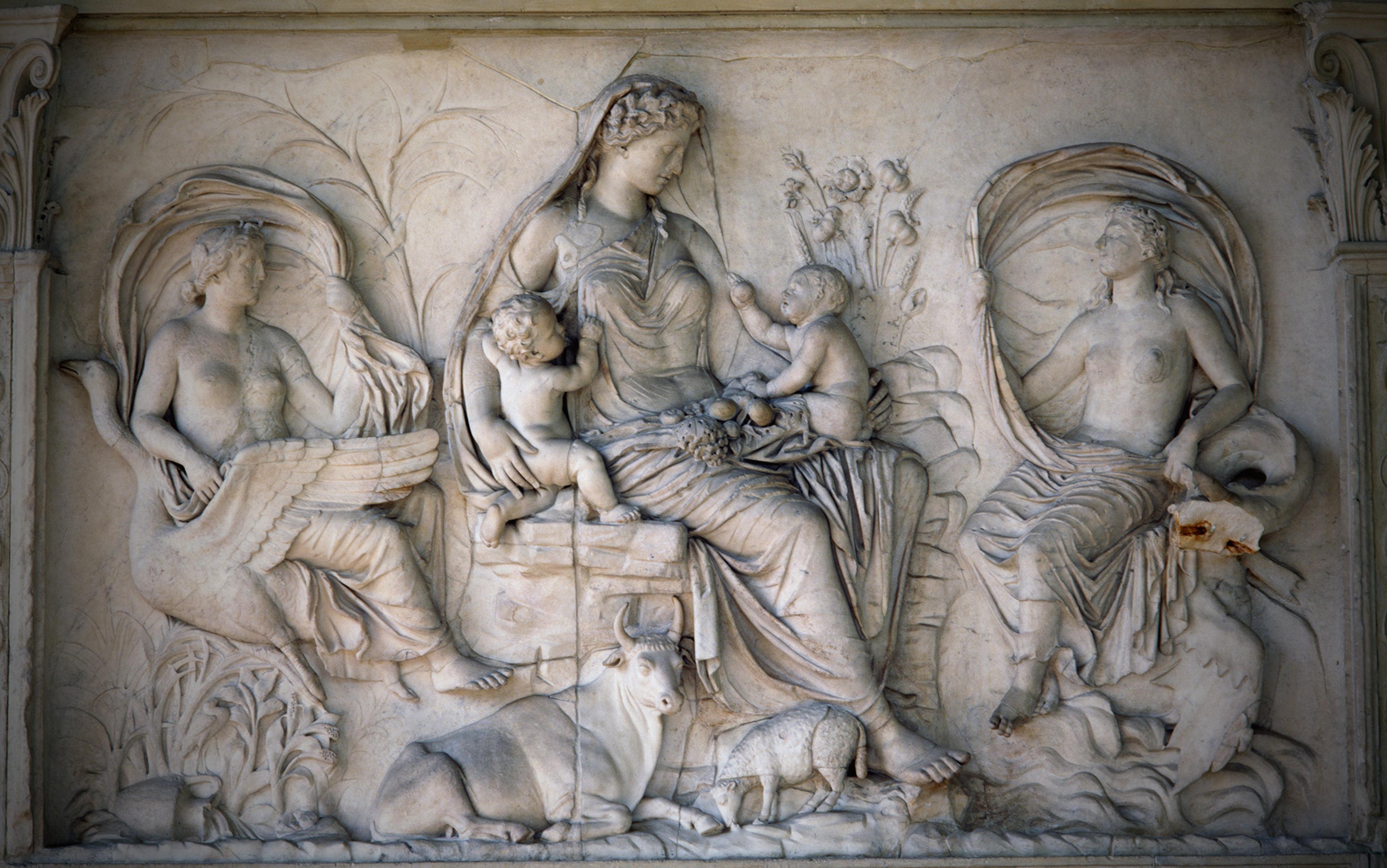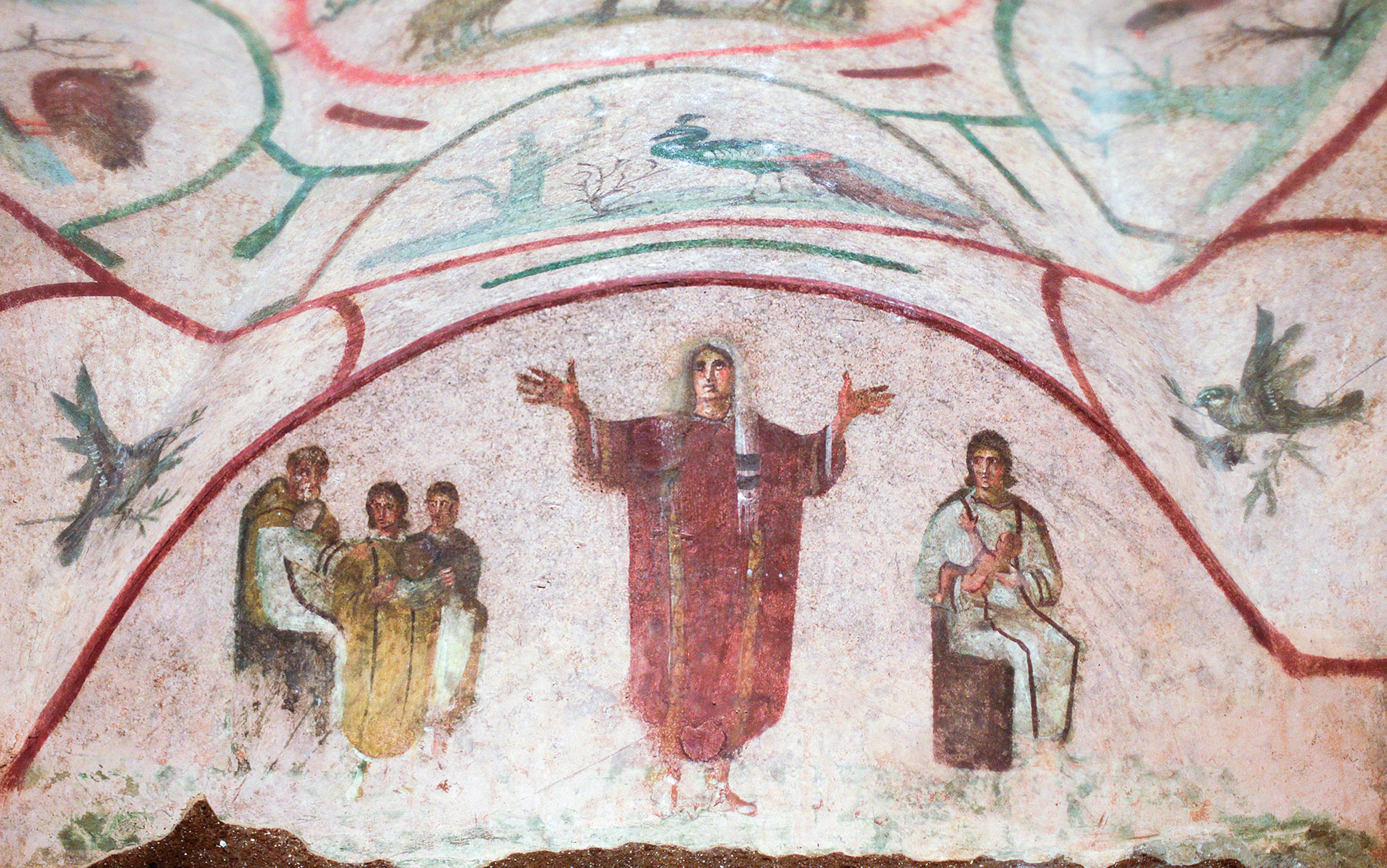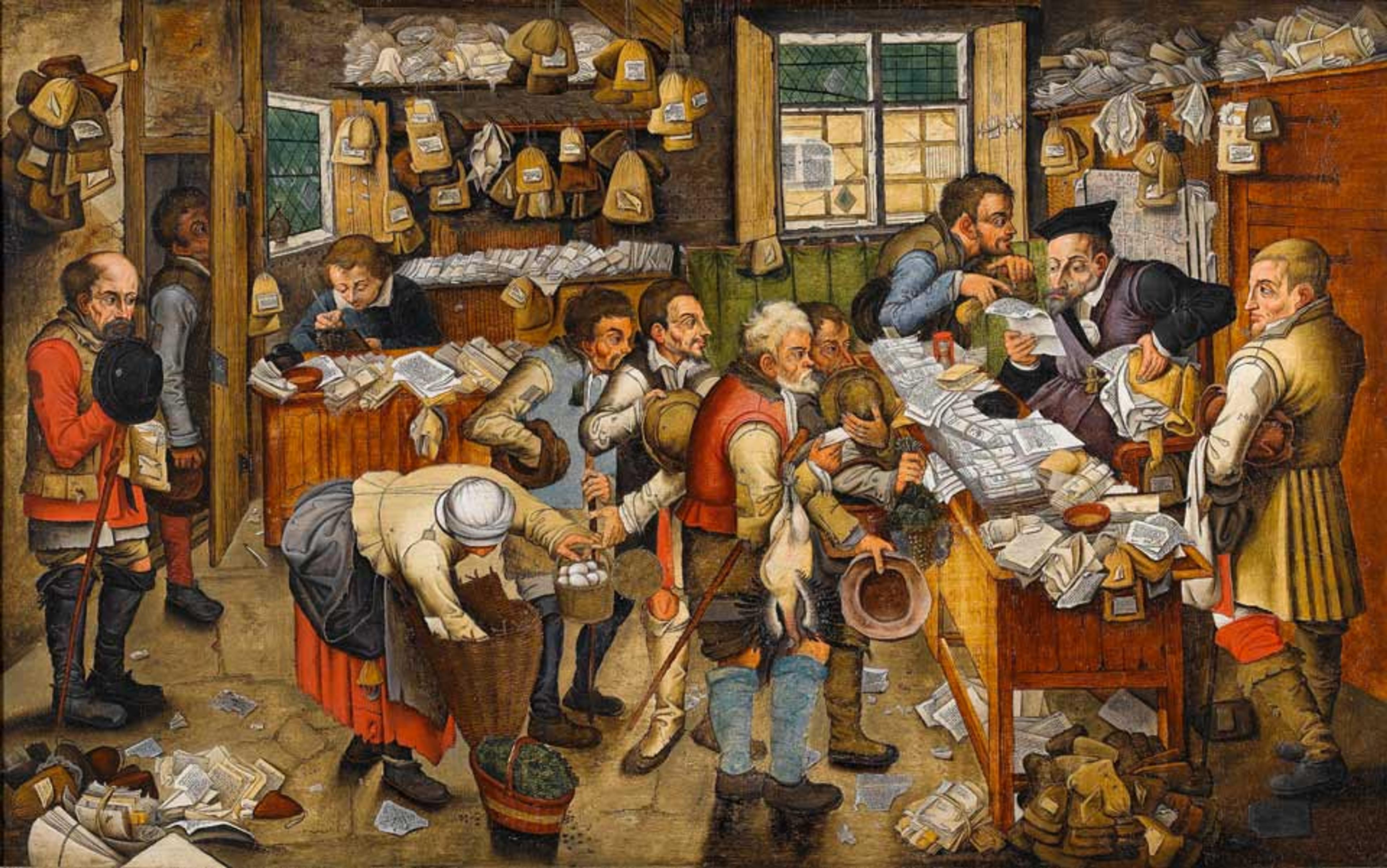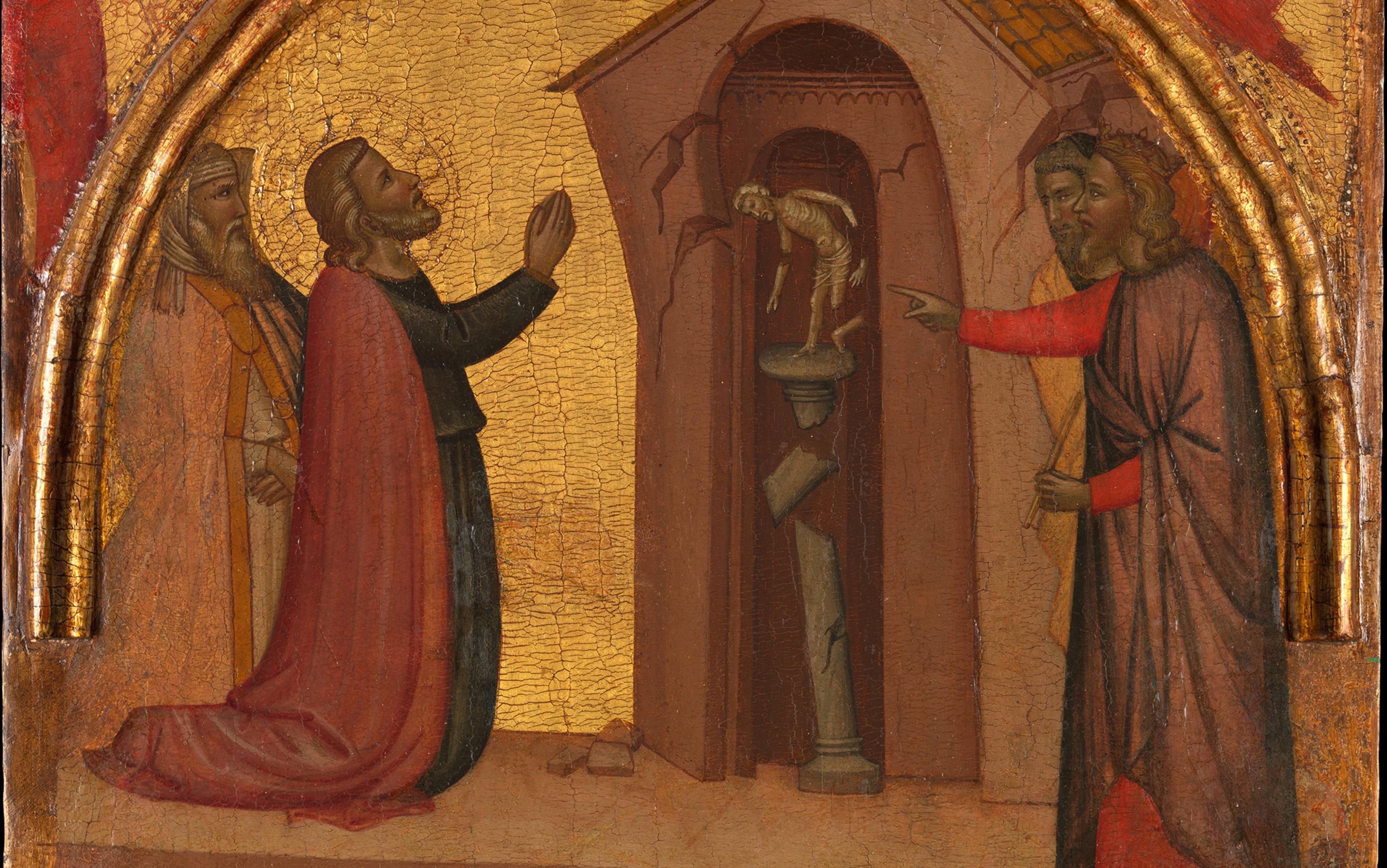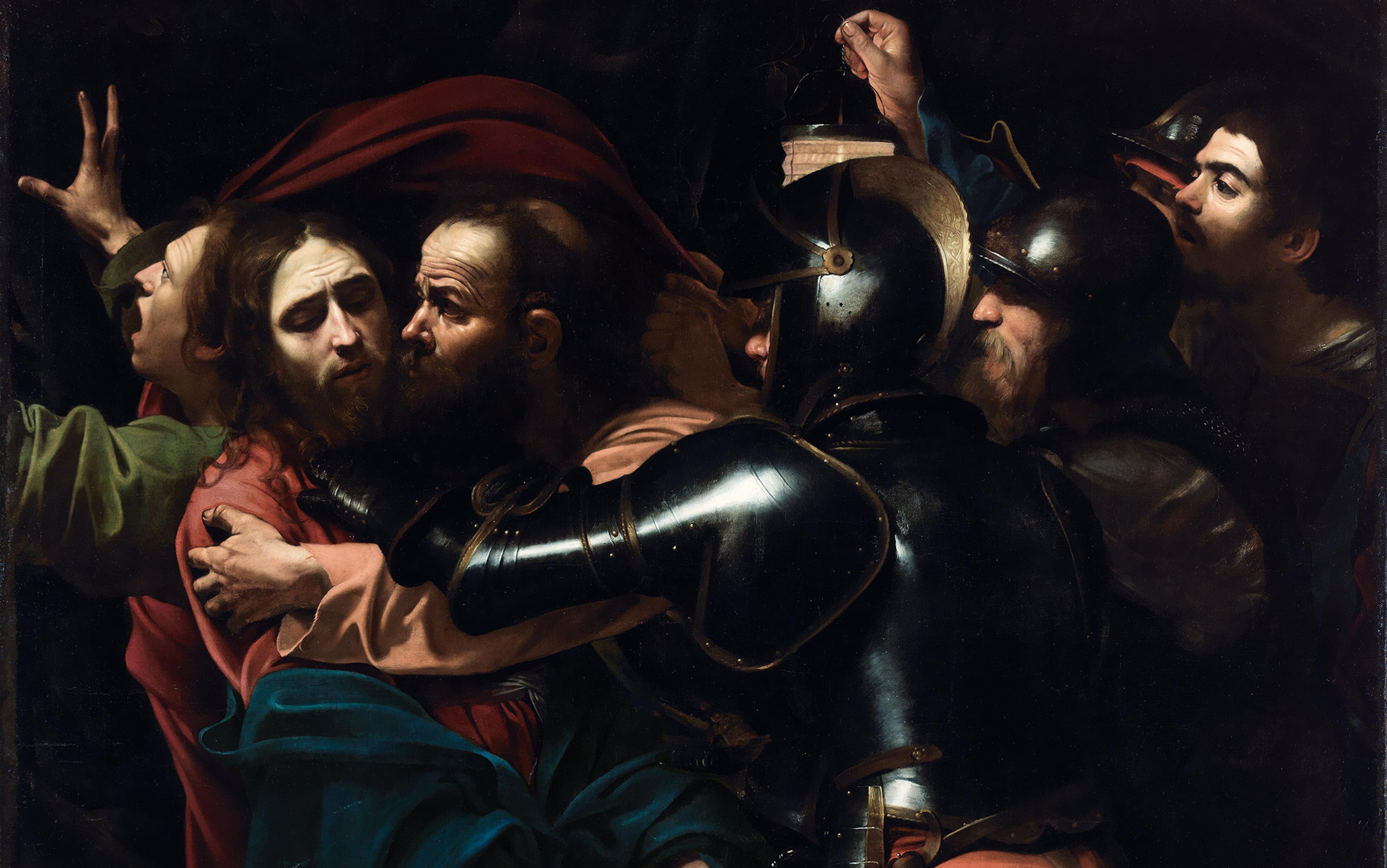In Greco-Roman culture, the well-to-do weren’t expected to support and help the poor. The Greek and Latin verbs for ‘doing good, being beneficent’ never have ‘the poor’ as their object, nor do they mean ‘almsgiving’. The Greek word philanthrôpia doesn’t have the sense of our modern philanthropy. One is philanthrôpos towards one’s own people, family, and guests – not towards the poor. And eleêmosynê (from which ‘alms’ is derived), in the sense of showing pity or mercy for someone else, never has the poor as its primary object. Ancient Greek moralists didn’t admonish people to concern themselves about the fate of the poor. And while generosity was praised as a virtue, the poor were never singled out as its object; it was always directed to humans in general, provided that they deserved it.
When Greeks did speak about the joy of giving to others, it has nothing to do with altruism, but only with the desired effects of giving: namely honour, prestige, fame, status. Honour is the driving motive behind Greek beneficence, and for that reason the Greek word philotimia (literally, ‘the love of honour’) could develop the meaning of ‘generosity, beneficence’, not directed towards the poor but to fellow humans in general, especially those from whom one could reasonably expect a gift in return. These were the ‘worthy ones’ because they acknowledged and respected the principle of reciprocity (quid pro quo), one of the pillars of ancient social life, which was simply stated by the poet Hesiod around 700 BCE: ‘Give to him who gives, but do not give to him who does not give (in return).’ Even though some ancient moralists occasionally said that in the best form of beneficence one does not expect anything in return from the beneficiary, the pervasive view was that a donor should be reimbursed one way or another, preferably with a gift greater than the donor himself had given.
Religion was not much help to the poor: they simply weren’t the favourites of the gods. There was a Zeus Xenios (for strangers) and a Zeus Hiketêsios (for supplicants), but there was no Zeus Ptôchios (for the poor), nor any other god with an epithet indicating concern for the needy. It was rather the rich who were seen as the favourites of the divine world, their wealth being the visible proof of that favour. The poor could not pray for help from the gods because they were poor, for their poverty was a disadvantage in their contact with the gods. This was the implication of the common belief that the poor were morally inferior to the rich. They were often regarded as more readily inclined to do evil; for that reason, their poverty was commonly seen as their own fault. No wonder that they were not seen as people deserving help, and that no organised charity developed in Ancient Greece or Rome. In such societies, giving alms to the poor could not be seen as a virtue, as care for them was often regarded as a mere waste of resources.
The distributions of corn to the population by city states or emperors in times of need cannot pass for organised charity because the corn was given to all citizens in equal measure (not only to the poor). The poor didn’t get more than the rich, and even the poorest class of society was never singled out for especially favourable treatment. All this applies to the Ancient Romans no less than to the Greeks. When a Roman is generous towards others, it is not because they are poor but because he expects to get something in return, and because it confers honour and status upon him. Beneficia are for fellow citizens, not for the poor.
Since the beneficiary was usually expected to give something in return, the benefaction could become a burden. ‘There are some who even hate their benefactors,’ said Menander the playwright. But the idea of reciprocity was deeply ingrained in ancient society, and giving remained one of the chief ways of acquiring status within the social or political group. Neither Ancient Greek nor Roman shrank from admitting that striving after honour was the decisive motive for generosity. The Roman philosopher and orator Cicero wrote that ‘most people are generous in their gifts not so much by natural inclination as by the lure of honour’. And Pliny the Younger pithily agreed: ‘Honour must be the consequence’ of generosity.
While care for the poor, let alone organised charity, was a non-item in Greco-Roman antiquity, it is a central concern in the Jewish Bible. Caring for the poor is seen as a major duty and virtue not only in the Torah of Moses, but also in the Prophets and other biblical writings. Most significantly, God is seen as the protector of the poor and the rescuer of the needy. They are his favourites and the objects of his mercy, regarded as humble before God and therefore often as pious and righteous.
That is not to say that we will find a positive evaluation of poverty here – the poor are ‘righteous’ only insofar as they are the innocent victims of injustice, and poverty does not automatically translate into piety, but it does seem to make one closer to God. In a courtroom, an Ancient Greek could invoke his opponent’s poverty in order to cast a dubious light on his character – this strategy was not available to a biblical Israelite.
The Torah urges Israel to be generous towards the poor in their midst. The prophets warn repeatedly against oppressing the poor and the needy. A ‘day acceptable to the Lord’ is the day on which the people share their bread with the hungry, bring the poor into their house, and clothe the naked. In the book of Job, the protagonist’s efforts to help the poor are emphasised as laudable. The poor were to be allowed to harvest the borders or corners of the fields and vineyards, and the sabbatical year was instituted in order that the poor might eat. The biblical adage ‘Open your hand to the poor’ encapsulates the Jewish Bible’s approach to charity.
‘When you have wealth, stretch out your hand to the poor’
In spite of the fact that there is much concern for the poor in the Bible, there still is no organised charity. Of course, some of the Torah’s commandments are in a sense collective measures, but it is still left to the individual whether or not to carry them out, since there is no central organisation to oversee its implementation.
The post-biblical Sentences of Pseudo-Phocylides, a Jewish wisdom poem of 230 hexameters written in Greek, exemplify this private (as opposed to communal or organised) concern for the poor. In the opening section, the author wrote: ‘Do not oppress a poor man unjustly, do not judge him by his appearance,’ a sentiment repeated further on: ‘Give a labourer his pay, do not oppress a poor man.’ Then it says: ‘Give to a beggar at once and do not tell him to come tomorrow. Fill your hand and give alms to the needy.’ And again some lines further on: ‘When you have wealth, stretch out your hand to the poor. From what God has given you provide for those in need.’
When in the first 30 lines of his poem the author turns five times to the importance of taking care of the poor, it is evident how much value he attaches to this part of his message. The utterly un-Greek motif of love for the poor is one of his main concerns. But again, as in the biblical texts, it is all about private charity.
It is only in the early rabbinic period, especially the 2nd century CE, that we have concrete indications for institutional charity organised by the local synagogues. There were two such institutions: the quppah and the tamhuy. The quppah was the money chest to support the local poor, who received a weekly allotment; the tamhuy was the soup kitchen that was open on a daily basis to any poor person in need of a meal, including non-Jews.
The administrators of the synagogues appointed charity wardens who collected money every Friday, and others for the daily food collection and distribution. These officers were even allowed to exert some pressure on the members of the community in order to make sure that there would be enough to meet all needs. In order to prevent voluntary impoverishment, however, nobody was allowed to donate more than one-fifth of his property. It is significant that in the saying of Simon the Just, doing deeds of loving kindness is one of the three pillars upon which the world is standing, a remarkably un-Greek idea. Elsewhere, deeds of loving kindness are said to be equal to all the commandments of the Torah. Often, the motive for doing such deeds was the expectation of being rewarded by God, especially in the hereafter.
In rabbinic literature, it is stated repeatedly that the best way of giving to the poor is by doing it in such a way that nobody sees it happen or sees how much is being given. A gift to the poor must be made privately, with no one else present. A person who gives alms in secret is greater than Moses, says Rabbi Eleazar in the Talmud (he added that the gentiles give alms only for reasons of self-aggrandisement).
Whether every Jew lived up to this ideal is questionable in light of what the Gospel of Matthew has Jesus say in the Sermon on the Mount:
So whenever you give alms, do not sound a trumpet before you, as the hypocrites do in the synagogues and in the streets, so that they may be praised by others. Truly I tell you, they have received their award. But when you give alms, do not let your left hand know what your right hand is doing, so that your alms may be done in secret; and your Father who sees in secret will reward you.
Whatever one thinks about the authenticity of this saying, its critical note must reflect some form of reality; there must have been concrete practices that made these remarks relevant. And, in a sense, one could say that the many honorary donor inscriptions found in ancient synagogues prove that the Jews were not immune from the honorific ‘epigraphic habit’, although they are of a later date and do not concern alms but gifts to the community at large. But the sentiment expressed by Jesus above reflects the same mood as the one we find in rabbinic literature.
Jesus’ followers in Jerusalem appointed seven men to oversee the daily distribution of food
It’s hard to say when these poor-relief systems came into force because the sources that inform us about them are mostly late, that is, rabbinic. It is likely that the large-scale impoverishment caused by the two great wars against Rome (66-74 and 132-135 CE) was the most important trigger for producing this systematic care for the poor. Still, it’s not out of that question that some form of the system was already operative before 70 CE, even though we have no sources that explicitly say so (but absence of evidence is no evidence of absence).
The Christians had a system of poor relief right from the start, as indicated in the New Testament. In the earliest phase, when the Church was still a Jewish movement in the early 30s CE, the followers of Jesus in Jerusalem appointed seven men to oversee the daily distribution of food among the widows in their community. Not much later, the Jerusalem apostles and Paul agreed that the latter would organise a large-scale collection of money for the poor of the Christian community in Jerusalem. But these Christian initiatives cannot be regarded as a proof that Jewish-organised charity was already fully developed by the first half of the 1st century CE.
If there was a Jewish system of poor relief in the period when all Christians were still Jewish and remained within the fold of Judaism, a separate system was not necessary because poor followers of Jesus would be supported by the Jewish system. Otherwise one would have to assume that a ‘parting of the ways’ between Jews and Christians was taking place right from the start, which is very unlikely. So on the one hand it would seem that organised charity was a Christian innovation from the beginning. On the other, it is very hard to imagine that the Jews of the early Jesus movement spontaneously created from scratch a system of care for the poor without any Jewish precedent. I am inclined to think that they must have followed a Jewish paradigm, a system – however rudimentary – that was already in place in the 30s CE. But unfortunately we do not know anything about that.
What accounts for the difference between Greco-Roman and Jewish and Christian approaches to the care of the poor? The Dutch professor of ancient history Hendrik Bolkestein argued in his influential Charity and Poor Relief in Pre-Christian Antiquity (1939) that the differences between these two cultural spheres – as far as poor relief is concerned – had little or nothing to do with the differences between their respective religions. The contrast should be explained, he says, as a result of the different socioeconomic position of the poor in these cultures. To put it simply, Bolkestein states that the poor’s dependence upon the rich, and their lack of rights, was much higher in Israel than in Greece and Rome. However, recent research has shown that Bolkestein overstated the contrast between the socioeconomic position of the poor in Israel on the one hand and in Greece and Rome on the other. And aside from that, his interpretation of the evidence and the one proposed by me and others are not mutually exclusive.
It would seem, therefore, that there is little reason not to take seriously the Jewish and Christian claim that charity is a divine commandment, and that the poor have to be regarded as God’s protégés. The religious motivation of charity, the strong association of love for God with aid for the needy, is so omnipresent in all the Jewish and Christian evidence that it would be unwise to belittle or ignore it. To give an example, in the Jewish book of Tobit, the protagonist states right from the start that his care for the poor is the most obvious mark of his Jewishness, and that almsgiving is an excellent offering to the Most High. Nowhere is that religious principle stated more forcefully than in the words of Jesus in the Gospel of Matthew, when he says to those who fed the hungry and clothed the naked: ‘You did it to me’.
In the Church, it was initially the main task of the deacons to organise charity. The first time they are mentioned in the New Testament as Church officials is in the opening line of Paul’s Letter to the Philippians, where the fact that he lists them after the bishops strongly suggests that they belong to the officials of the Church, and that at a very early date (the Letter is from the 50s CE) there was already a rudimentary hierarchy. The fact that a pupil of Paul says that deacons should not be greedy for money suggests that they were involved in financial matters, most probably the collection and distribution of alms.
See how often the Hebrew prophets fulminated against oppression of the poor
Although the nomenclature is Hellenistic (diakonos is not a Jewish designation of a religious official), it seems clear that the function of the deacon is patterned upon that of the Jewish charity officials. For even though the New Testament does not give us a clear description of the tasks of a diakonos, it seems certain that care for the poor was among these tasks, and that money from the community chest was used for that purpose. The texts stress that deacons should not be infected by love for money, and this leaves no doubt about the moral dangers of this ministry in which they were in charge of the charity box. Apparently, not every deacon could withstand the enticements that came with it.
Much of what has been presented here is about theory, about how it should be, which is not necessarily as it was in reality. We have to distinguish between what Bolkestein called ‘preached ethics’ and ‘lived ethics’. And unfortunately we know much more about the ‘preached’ theory than about the ‘lived’ practice. This implies that, as far as poor relief is concerned, the practice might have been worse, much worse, than the theory. When we see how often and how vehemently the Hebrew prophets fulminated against oppression and exploitation of the poor, it is clear that the theory was frequently not brought into practice. On the other hand, it is also possible that in Greco-Roman societies, in spite of the indifference towards the poor that one finds so often expressed, in actual practice there was much more compassion for them and much more genuine humanitarian concern than one would expect. But we simply do not know.
However, a line from a letter written by an emperor should be remembered. In 362 CE, Julian the Apostate, the last pagan emperor of the Roman Empire, wrote in a letter to a priest in Asia Minor that lots of corn should be distributed to the inhabitants of Galatia; one-fifth of it should be given to the poor, and the rest to strangers and beggars. Notably, he then adds: ‘For it is a shame that, when no Jew ever has to beg and the impious Galilaeans [Christians] support not only their own poor but ours as well, everyone can see that our people lack aid from us.’
So in spite of any relativising observations, it remains an indisputable fact that organised charity in the sense of a communal obligation towards the needy, which was by and large unknown in Greco-Roman culture, was created by the Jews and adopted by the Christians. And one can hardly deny that these developments were inspired by the sincere conviction that humankind should imitate God’s special concern for the most vulnerable among humans – the poor.
